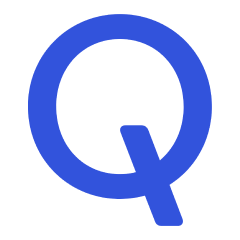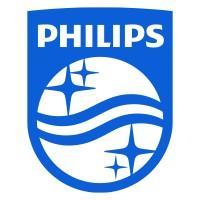Intuit interview experience Real time questions & tips from candidates to crack your interview
SDE - Intern
Intuit
3 rounds | 3 Coding
problems
Interview preparation journey
Journey
I started this amazing journey with competitive programming 2 years before my intern season and was able to achieve expert rank on codeforces. I then came across web development and learnt it through a udemy course by dr angela yu. I made 2 projects on web development. I also learnt cs fundamentals while preparing for interview
Application story
It was an on campus application abiding by the rules of the institution. There was total 3 rounds.
Why selected/rejected for the role?
Rejected, not enough preparation of the interviews and which is why was not able to meet interviewers expectations.
Preparation
Duration: 6 months
Topics: Data structure, Algorithms, OOPs, Operating System, DBMS
Tip
Tip 1 : Do competitive programming in 1st and 2nd year.
Tip 2 : Study every data structure and algorithm in dfs manner. Once done then practice.
Tip 3 : Don't ignore theoretical subjects.
Application process
Where: Campus
Eligibility: Selected candidates were contacted based on resume.
Resume tip
Tip 1 : Do at least 2 projects.
Tip 2 : Mention your programming accounts.
Interview rounds
01
Round
Hard
Online Coding Interview
Duration90 minutes
Interview date5 Oct 2020
Coding problem0
There were 4 questions. All questions were of medium-hard level. Try to maximize your score.
02
Round
Medium
Video Call
Duration30 minutes
Interview date7 Oct 2020
Coding problem1
The round lasted for about 45 min. I was asked a lot of OOPs questions. There was a detailed discussion on one of my project along with current problems in my project. How can I make it more secured and increase scalability.
1. Stack using queue
Moderate
25m average time
65% success
0/80
Asked in companies



Implement a Stack Data Structure specifically to store integer data using two Queues.
There should be two data members, both being Queues to store the data internally. You may use the inbuilt Queue.
Implement the following public functions :
1. Constructor:
It initializes the data members(queues) as required.
2. push(data) :
This function should take one argument of type integer. It pushes the element into the stack and returns nothing.
3. pop() :
It pops the element from the top of the stack and, in turn, returns the element being popped or deleted. In case the stack is empty, it returns -1.
4. top :
It returns the element being kept at the top of the stack. In case the stack is empty, it returns -1.
5. size() :
It returns the size of the stack at any given instance of time.
6. isEmpty() :
It returns a boolean value indicating whether the stack is empty or not.
Operations Performed on the Stack:
Query-1(Denoted by an integer 1): Pushes an integer data to the stack. (push function)
Query-2(Denoted by an integer 2): Pops the data kept at the top of the stack and returns it to the caller. (pop function)
Query-3(Denoted by an integer 3): Fetches and returns the data being kept at the top of the stack but doesn't remove it, unlike the pop function. (top function)
Query-4(Denoted by an integer 4): Returns the current size of the stack. (size function)
Query-5(Denoted by an integer 5): Returns a boolean value denoting whether the stack is empty or not. (isEmpty function)
Example
Operations:
1 5
1 10
2
3
4
Enqueue operation 1 5: We insert 5 at the back of the queue.
Queue: [5]
Enqueue operation 1 10: We insert 10 at the back of the queue.
Queue: [5, 10]
Dequeue operation 2: We remove the element from the front of the queue, which is 5, and print it.
Output: 5
Queue: [10]
Peek operation 3: We return the element present at the front of the queue, which is 10, without removing it.
Output: 10
Queue: [10]
IsEmpty operation 4: We check if the queue is empty.
Output: False
Queue: [10]
Problem approach
I just had to write the push and pop functions. After discussing my approach and its complexities, I was allowed to code.
03
Round
Hard
Video Call
Duration90 minutes
Interview date8 Oct 2020
Coding problem2
There were two interviewers. After introduction, and small discussion on my project. They asked my favourite subject, I answered OOP- was asked to differentiate between OOP language and Procedure Oriented Languages. Then definition of OOP and real life examples of overloading and overriding.
I was asked to code a data structure where I can obtain, add, remove one occurrence and all occurrence in O(1). I tried using maps, he was not very satisfied.
1. I was asked about importance of testing. What is unit testing?
How I test my solution in Cp and in projects.
2. What is Deadlock?
I was asked to write a cpp code to illustrate Deadlock.

Here's your problem of the day
Solving this problem will increase your chance to get selected in this company
Skill covered: Programming
What is the purpose of the return keyword?
Choose another skill to practice
Similar interview experiences
SDE - Intern
3 rounds | 6 problems
Interviewed by Intuit
4309 views
0 comments
0 upvotes
SDE - Intern
2 rounds | 5 problems
Interviewed by Intuit
1230 views
0 comments
0 upvotes
SDE - Intern
3 rounds | 8 problems
Interviewed by Intuit
991 views
0 comments
0 upvotes
SDE - Intern
3 rounds | 6 problems
Interviewed by Intuit
1398 views
0 comments
0 upvotes
Companies with similar interview experiences
SDE - Intern
3 rounds | 6 problems
Interviewed by Amazon
15556 views
4 comments
0 upvotes
SDE - Intern
4 rounds | 7 problems
Interviewed by Microsoft
15417 views
1 comments
0 upvotes
SDE - Intern
2 rounds | 4 problems
Interviewed by Amazon
10180 views
2 comments
0 upvotes




